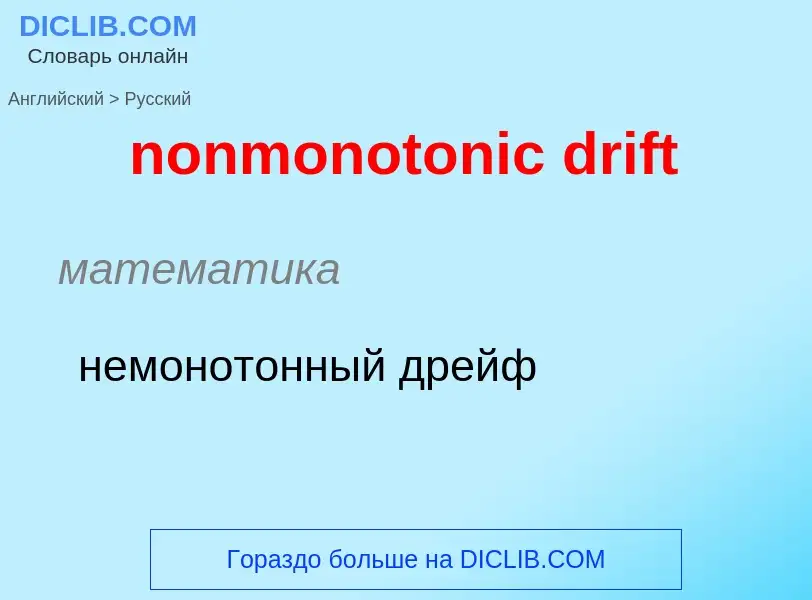Μετάφραση και ανάλυση λέξεων από την τεχνητή νοημοσύνη ChatGPT
Σε αυτήν τη σελίδα μπορείτε να λάβετε μια λεπτομερή ανάλυση μιας λέξης ή μιας φράσης, η οποία δημιουργήθηκε χρησιμοποιώντας το ChatGPT, την καλύτερη τεχνολογία τεχνητής νοημοσύνης μέχρι σήμερα:
- πώς χρησιμοποιείται η λέξη
- συχνότητα χρήσης
- χρησιμοποιείται πιο συχνά στον προφορικό ή γραπτό λόγο
- επιλογές μετάφρασης λέξεων
- παραδείγματα χρήσης (πολλές φράσεις με μετάφραση)
- ετυμολογία
nonmonotonic drift - translation to ρωσικά
математика
немонотонный дрейф
строительное дело
скорость неконтролируемого медленного изменения (напр. параметров среды)
математика
случайный дрейф
случайное смещение
Ορισμός
Βικιπαίδεια
A non-monotonic logic is a formal logic whose conclusion relation is not monotonic. In other words, non-monotonic logics are devised to capture and represent defeasible inferences (cf. defeasible reasoning), i.e., a kind of inference in which reasoners draw tentative conclusions, enabling reasoners to retract their conclusion(s) based on further evidence. Most studied formal logics have a monotonic entailment relation, meaning that adding a formula to a theory never produces a pruning of its set of conclusions. Intuitively, monotonicity indicates that learning a new piece of knowledge cannot reduce the set of what is known. A monotonic logic cannot handle various reasoning tasks such as reasoning by default (conclusions may be derived only because of lack of evidence of the contrary), abductive reasoning (conclusions are only deduced as most likely explanations), some important approaches to reasoning about knowledge (the ignorance of a conclusion must be retracted when the conclusion becomes known), and similarly, belief revision (new knowledge may contradict old beliefs).

